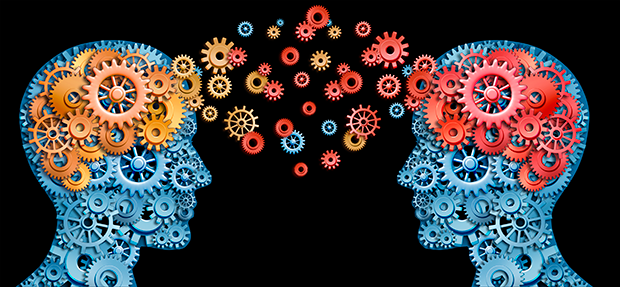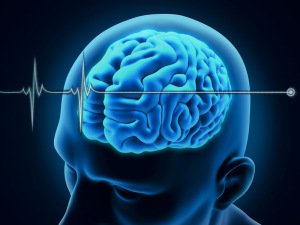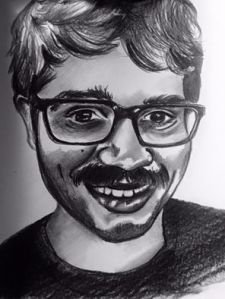这个帖子的原作者是@sterlinluxan. 你可以在这里找到原文 :
@sterlinluxan/autism-is-a-gift-it-is-neurodiversity-in-a-neurobland-world
This post was originally written by @sterlinluxan.
You can find the original story here:
@sterlinluxan/autism-is-a-gift-it-is-neurodiversity-in-a-neurobland-world
自闭症是一份礼物;它是在一个在神经平淡世界里的多样化神经 // Autism is a Gift; It is Neurodiversity in a NeuroBland World


一个在自闭症和多样化神经社区的发展趋势是远离找寻自闭症的“缘由”,而是努力改善这一群独特的人的生活和观念。
One of the trends in autism and neurodiversity communities is this movement away from finding the "cause" of autism and instead trying to improve quality of life and perceptions of these unique individuals.
第一步是医疗机构停止把这些美丽的人看成是不完美或患病的。这只会导致医疗行业不断的找寻“治愈”方法,这或导致某些自闭症患者觉得失去人性或被耻辱。
The first step is for the medical establishment to stop looking at these beautiful people as broken or diseased. This only leads the medical industry to undergo this constant search for a "cure," which dehumanizes or stigmatizes certain autistic people.
有些“功能减低”的自闭症儿童面临腹部、运动、胃肠问题和社会问题是事实,但这种差别不一定是永久的或是疾病的迹象。
It is true that "lower functioning" autistic children have trouble with their abdominals, movement, gastrointestinal issues, and socialization problems, but this difference in functioning is not necessarily permanent or sign of disease.
欲找到自闭症的确切原因几乎是不可能的
It is Nearly Impossible to Locate the Precise Cause of Autism
自闭症是否“源自”遗传的当前研究表明当中涉及了大量基因和多重环境因素,几乎不可能找到导致“残疾”引起自闭症的单个遗传因子。
Current research on whether genetics "causes" autism has shown that there is such a large number of genes and such a multiplicity of environmental factors that it is nearly impossible to locate a single genetic factor that causes a "disability" caused autism.
即使能找到单个基因,这是否必然意味着自闭症是一种疾病或残缺?那高IQ或其他遗传异常事实上都是疾病或残缺?
And even if a single gene were located, does that automatically imply that autism is a disease or malfunction? Are high IQ's or other genetic anomalies de facto diseases or malfunctions?
当然,行为、社会、情感和认知特征符合“自闭症”的标签 的人可以得到帮助和协助,但我不认为他们比附有音乐天份或聪明的人更愈需要治愈。
Sure, people with the behavioral, social, emotional, and cognitive profiles that match the label called "autism" could be helped and assisted, but I do not think they need a cure anymore than someone needs a cure for possessing musical genius or intelligence.
自闭症患者只需要被接受、援助和迎合他们独特的需求的专业环境,特别是关于他们的社会需求。
Autistics only need acceptance, aid, and specialized environments that cater to their unique needs, especially in regards to their social requirements.
遗传差异和神经多样化的自然变异
Natural Variation in Genetic Differences and Neurodiversity
很多有着这份礼物的人希望得到确认,他们的具体运作形式正是基于基因的自然变化,也就是“多样化神经”概念的诞生。
Many people with the gift are pushing for acknowledgement that their specific form of functioning is just based on natural variations in genetics, which is how the concept of "neurodiversity" was born.
他们认为自己是独特与不同的,而不是作为检查或探测的对象。史蒂夫西尔伯曼阐述了这一现象,指明现在硅谷地区的自闭症儿童已经增加了。他称这一现象为“极客综合症”。
They see themselves as unique and different, not as objects to be examine or probed. Steve Silberman elaborated on this phenomenon by pointing out that there has been an increase in autistic children in the Silicon Valley area. He has dubbed this phenomenon the "geek syndrome."
极客综合症意味着这些人都是超级聪明的,不同的,并在某些认知领域能高度学习。它并不意味着他们有问题或疾病。它甚至不意味着疫苗毒害了他们(我在以下视频有所讨论)。这可能意味着,有自闭症的人只是一个神经平淡的世界里的神经多样化的个体 - 或只是一个不能很好地适应这种无趣和规则的社会的人。
The Geek Syndrome implies that these people are hyper intelligent, different, and demonstrate higher learning in certain cognitive domains. It does not mean that have a problem or disease. It does not even mean that vaccines poisoned them (which I discuss in the video below). It might mean that autistic people are neurodiverse individuals in a neuro-bland world—or simply individuals who don't adjust well to this uninteresting and rule-laden society.
因此,也许现在是时候接受他们了,而不是尝试“修理”他们。也许“典型神经”的人应该换个思想,也许是他们不能像自闭症患者一样以美丽的方式理解这个世界。
Therefore, maybe it is time to accept them for who they are instead of trying to "fix" them. Maybe "neurotypical" people should consider that they do not comprehend the world in the same beautiful way as autistics.
西尔伯曼提供了一个例子说明他们如何看待典型神经:
Silberman provided an example of how they feel about neurotypicals:
“根据自闭症的标准,“正常的”大脑容易分心,是一个非常爱社交,并难以注重细节和非常常规的。因此,在这些频谱的人们体验的典型神经世界是不可预测和混乱的,永远非常大声,又充满着不尊重个人空间的人。― Steve Silberman, NeuroTribes: The Legacy of Autism and the Future of Neurodiversity
“By autistic standards, the “normal” brain is easily distractible, is obsessively social, and suffers from a deficit of attention to detail and routine. Thus people on the spectrum experience the neurotypical world as relentlessly unpredictable and chaotic, perpetually turned up too loud, and full of people who have little respect for personal space.” ― Steve Silberman, NeuroTribes: The Legacy of Autism and the Future of Neurodiversity

我在这视频里解析自闭症和疫苗的问题:
In this Video I tackle the Problem of Autism and Vaccines:
我的名字是Sterlin 。在@ Psychologic-Anarchist跟随我。我也运行Psychologic-Anarchist的面子书,并制作许多YouTube视频。我的兴趣在于心理辅导和无政府主义的交集。我编写关于精神病学的掠夺,和附同情心无政府主义的新理念。我们有一个庞大的社区专门讨论心理学和自愿服务。
My name is Sterlin. Follow me @ Psychologic-Anarchist. I also run the Psychologic-Anarchist Facebook page and produce many YouTube videos. My interests lie in the intersection of counseling psychology and anarchism. I write about the depredations of psychiatry, and also the new philosophy of compassionate anarchism. We have a large community devoted to discussing psychology and relational voluntaryism.

这个帖子的原作者是@sterlinluxan. 你可以在这里找到原文 :
@sterlinluxan/autism-is-a-gift-it-is-neurodiversity-in-a-neurobland-world
This post was originally written by @sterlinluxan.
You can find the original story here:
@sterlinluxan/autism-is-a-gift-it-is-neurodiversity-in-a-neurobland-world
